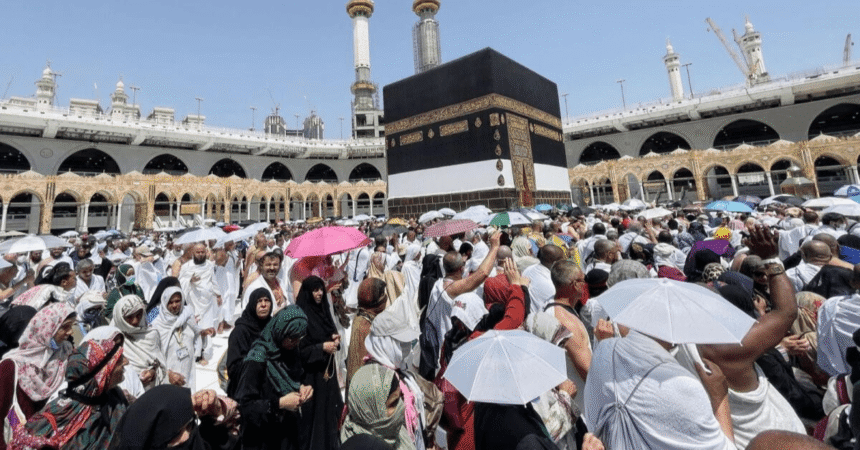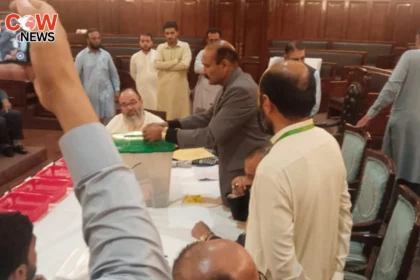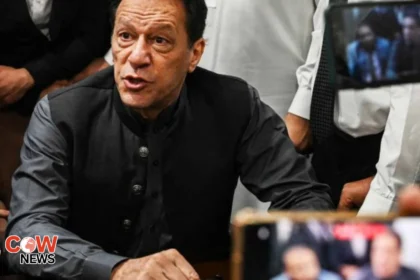The issue of beggary among Pakistani nationals in Saudi Arabia has escalated into a significant concern for both Saudi authorities and the Pakistani government. Recently, the Saudi Ministry of Hajj issued a warning to Pakistan’s Ministry of Religious Affairs, emphasizing the need for urgent action to prevent the growing influx of Pakistani beggars arriving on Umrah visas. This situation poses not only a threat to the integrity of the religious pilgrimage but also impacts the broader perception of Pakistani citizens abroad.
Growing Concern from Saudi Authorities
Saudi Arabia has long been a destination for millions of Muslims worldwide, especially during the Hajj season and throughout the year for Umrah. The government of Saudi Arabia invests considerable resources to ensure that these religious activities are conducted smoothly and respectfully. However, the increasing number of beggars, particularly from Pakistan, has raised alarms among Saudi officials.
Implications for Hajj and Umrah
Hajj and Umrah are not just religious obligations; they represent a profound spiritual journey for millions of Muslims. The presence of beggars can tarnish this sacred experience, making it uncomfortable for pilgrims who seek spiritual solace and reflection. Saudi authorities fear that if the situation continues unchecked, it could not only disrupt the experience for genuine pilgrims but also negatively influence the kingdom’s reputation as a host for these important religious events.
The Pakistani Government’s Response
In light of the Saudi government’s concerns, Pakistan’s Ministry of Religious Affairs is taking steps to address the issue. The ministry plans to introduce an “Umrah Act” designed to regulate the activities of travel agencies involved in facilitating Umrah trips. This legislation aims to bring these agencies under legal scrutiny to ensure compliance with regulations, thereby curbing any potential exploitation of the pilgrimage system.
Regulatory Measures through the Umrah Act
The Umrah Act will serve as a framework for oversight and accountability in the travel industry related to religious pilgrimages. By instituting stricter regulations, the ministry hopes to prevent unscrupulous agents from taking advantage of the religious sentiments of individuals, particularly those who might be seeking to travel under false pretenses.
This act is seen as a necessary step to safeguard the integrity of the Umrah process and to ensure that only genuine pilgrims participate. It is also expected to create a more structured approach to managing the increasing number of travelers heading to Saudi Arabia for religious purposes.
Collaborative Efforts with Saudi Arabia
In a recent meeting between Pakistan’s Interior Minister Mohsin Naqvi and Saudi Ambassador Nawaf bin Said Ahmed Al-Malki, both parties expressed the importance of cooperation in addressing the issue. Naqvi assured the ambassador that the Pakistani government is committed to implementing strict measures against the mafias responsible for sending beggars to Saudi Arabia. This collaboration is crucial for not only resolving the immediate concerns but also for fostering a positive relationship between the two countries.
Tasking the Federal Investigation Agency (FIA)
To enforce these measures effectively, the Federal Investigation Agency (FIA) has been directed to intensify its crackdown on the networks involved in sending beggars abroad. The FIA’s recent actions, including the offloading of 11 alleged beggars from a Saudi-bound flight at Karachi airport, indicate the seriousness with which the agency is approaching this issue. During immigration checks, these individuals openly admitted that their intention was to beg in Saudi Arabia, highlighting the need for urgent action.
Broader Implications for Pakistani Nationals Abroad
The issue of beggary among Pakistani nationals is not merely an isolated concern; it reflects deeper societal challenges that need to be addressed. Dr. Arshad Mahmood, Secretary of Overseas Pakistanis, emphasized during a Senate Standing Committee meeting that the behavior of Pakistani expatriates, including work ethics and attitudes, is under scrutiny from several Gulf countries. Such perceptions can adversely affect the reputation of Pakistani workers in the region, potentially leading to reduced employment opportunities.
The Impact on Employment Opportunities
Negative stereotypes and concerns about the behavior of overseas Pakistanis can deter employers from hiring Pakistani nationals. As a result, individuals seeking better economic prospects may find it increasingly difficult to secure jobs in the Gulf states. This situation creates a cycle of poverty and desperation, which may lead some individuals to resort to begging as a means of survival.
Addressing the Underlying Issues
To tackle the problem effectively, it is essential to address the underlying socio-economic factors that contribute to this phenomenon. Many individuals who engage in begging do so out of desperation, often driven by poverty, lack of opportunities, and social instability. The Pakistani government, in collaboration with civil society and international organizations, needs to implement programs that provide economic support, vocational training, and employment opportunities for those at risk of falling into begging.
Creating Awareness and Education Programs
Public awareness campaigns can also play a crucial role in mitigating the issue. Educating potential travelers about the legal implications of attempting to enter foreign countries under false pretenses can deter them from making such decisions. Such initiatives can empower individuals to make informed choices about their travel and work opportunities abroad, reducing the likelihood of engaging in begging.
Strengthening Legal Frameworks
The proposed Umrah Act serves as a critical step toward establishing a legal framework to regulate travel agencies and ensure compliance with ethical practices. However, it is also essential to enhance the enforcement of existing laws related to immigration and trafficking. Strengthening legal frameworks can help hold accountable those who exploit vulnerable individuals for personal gain.
Collaboration with International Agencies
Collaboration with international agencies, such as the United Nations Office on Drugs and Crime (UNODC) and various NGOs, can provide additional resources and expertise in combating human trafficking and related crimes. By working together, governments can share best practices and develop strategies to address the root causes of begging and exploitation.
Long-Term Solutions and Future Directions
As the Pakistani government navigates this complex issue, it must remain focused on both immediate actions and long-term solutions. Addressing the problem of beggary among its citizens abroad requires a multifaceted approach that combines regulatory measures, public awareness, and socio-economic development.
Promoting a Positive Image of Pakistanis Abroad
The Pakistani government also needs to work actively to promote a positive image of its citizens abroad. Initiatives to highlight the contributions of Pakistani workers to host countries can counter negative stereotypes and build goodwill. Showcasing success stories and engaging in cultural diplomacy can help reshape perceptions and foster a more favorable environment for Pakistani expatriates.
A Collaborative Path Forward
The growing concern over Pakistani beggars in Saudi Arabia is a multifaceted issue that requires urgent attention and collaborative efforts from both governments. By implementing the proposed Umrah Act, enhancing regulations around travel agencies, and addressing the underlying socio-economic challenges, Pakistan can work towards preserving the dignity of its citizens while maintaining the sanctity of religious pilgrimages.
Saudi Arabia’s cooperation in this matter is vital, as both nations strive to ensure that the experience of Hajj and Umrah remains respectful and honorable for all involved. As both countries move forward, the emphasis must be on creating a sustainable framework that prioritizes the welfare of individuals and upholds the values of integrity and respect in international travel.
#Umrah #Hajj #SaudiArabia #Pakistan #OverseasPakistanis #FIA #TravelRegulation #ReligiousPilgrimage #Begging







